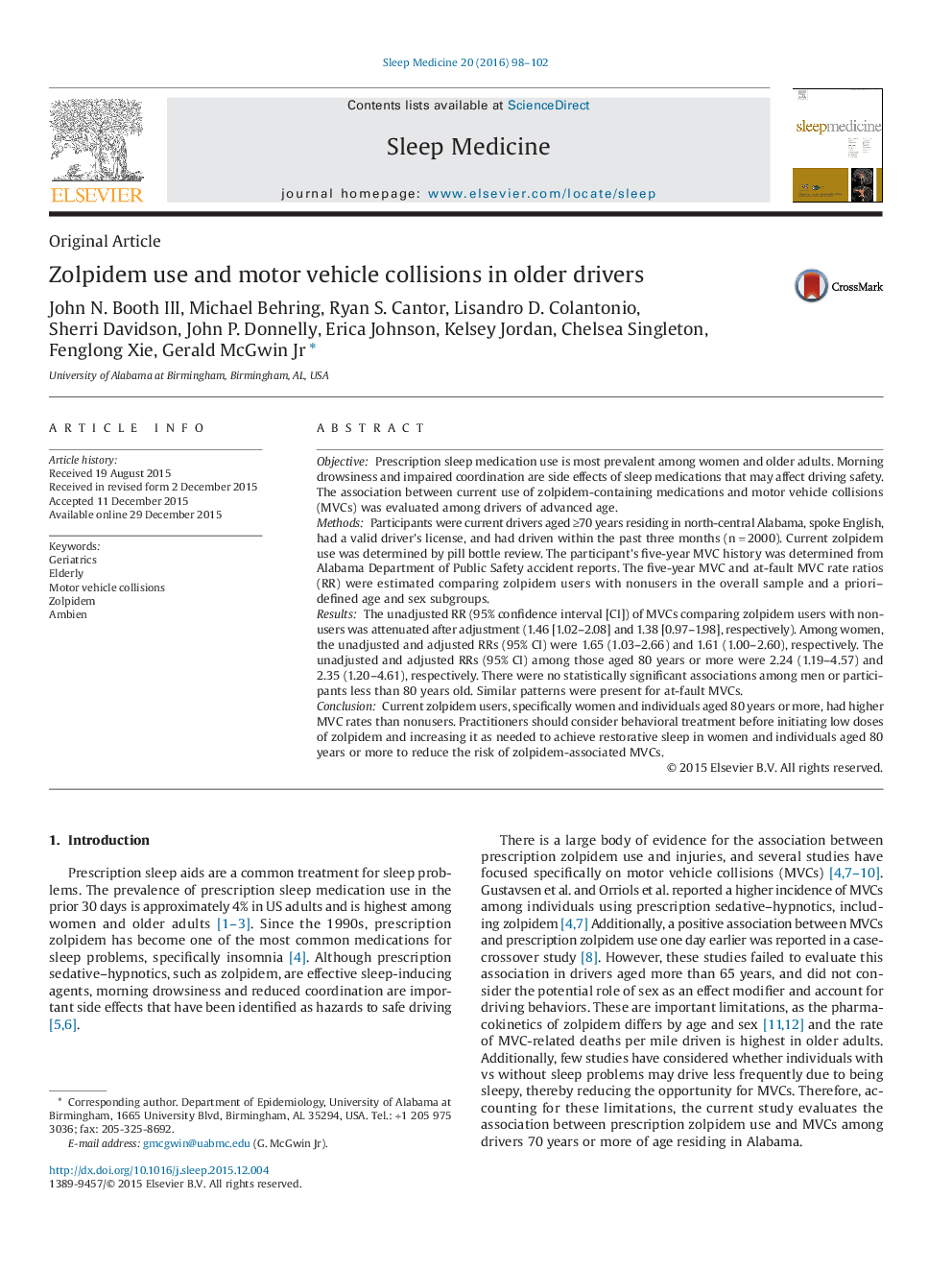| Article ID | Journal | Published Year | Pages | File Type |
|---|---|---|---|---|
| 6060166 | Sleep Medicine | 2016 | 5 Pages |
â¢Prescribed sleep medicine use in the past 30 days was highest in women and older adults.â¢Side effects that can affect driving safety are drowsiness/impaired coordination.â¢Zolpidem use and motor vehicle collisions (MVC) over five years were assessed in older drivers.â¢Zolpidem use was associated with higher MVC rates in women and in individuals 80 or more years of age.â¢Zolpidem-related MVCs may be avoided by initiating use at low doses and increasing it as needed
ObjectivePrescription sleep medication use is most prevalent among women and older adults. Morning drowsiness and impaired coordination are side effects of sleep medications that may affect driving safety. The association between current use of zolpidem-containing medications and motor vehicle collisions (MVCs) was evaluated among drivers of advanced age.MethodsParticipants were current drivers aged â¥70 years residing in north-central Alabama, spoke English, had a valid driver's license, and had driven within the past three months (nâ=â2000). Current zolpidem use was determined by pill bottle review. The participant's five-year MVC history was determined from Alabama Department of Public Safety accident reports. The five-year MVC and at-fault MVC rate ratios (RR) were estimated comparing zolpidem users with nonusers in the overall sample and a priori-defined age and sex subgroups.ResultsThe unadjusted RR (95% confidence interval [CI]) of MVCs comparing zolpidem users with nonusers was attenuated after adjustment (1.46 [1.02-2.08] and 1.38 [0.97-1.98], respectively). Among women, the unadjusted and adjusted RRs (95% CI) were 1.65 (1.03-2.66) and 1.61 (1.00-2.60), respectively. The unadjusted and adjusted RRs (95% CI) among those aged 80 years or more were 2.24 (1.19-4.57) and 2.35 (1.20-4.61), respectively. There were no statistically significant associations among men or participants less than 80 years old. Similar patterns were present for at-fault MVCs.ConclusionCurrent zolpidem users, specifically women and individuals aged 80 years or more, had higher MVC rates than nonusers. Practitioners should consider behavioral treatment before initiating low doses of zolpidem and increasing it as needed to achieve restorative sleep in women and individuals aged 80 years or more to reduce the risk of zolpidem-associated MVCs.
